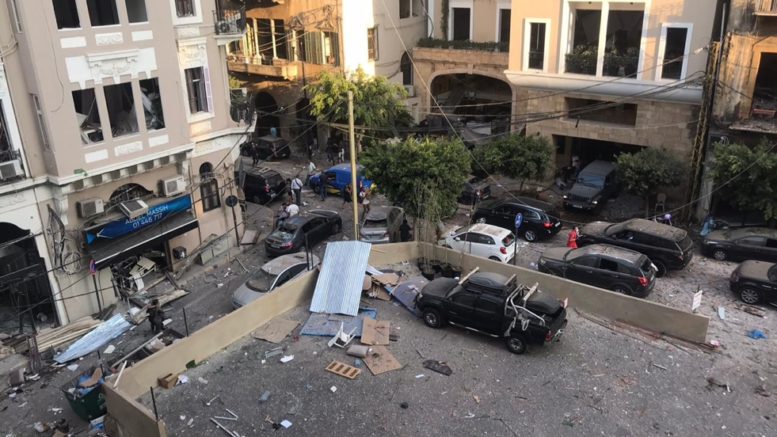A port warehouse that held 2,750 tons of ammonium nitrate exploded in Beirut on August 4th, 2020, and investigators now believe that it was an accident. Lebanon has faced a long history of corruption and economic disadvantages, but now this tragedy has rattled the country. People claim that they have little hope for the government to carry out proper investigation to recover the bodies of others who are still missing.
Officials and security officials were well aware of the nitrate that was kept in the port of Beirut for over seven years. No action was taken to carry out proper safety regulations. While the citizens of Beirut have taken to the streets to protest their anger at the government officials, Marie-Claude Najem, Lebanon’s Justice Minister, emphasizes that energy needs to be directed towards holding people legally accountable.
Prime Minister Resigns Amidst Protests
In the midst of the explosion and its horrendous impacts, Prime Minister Hassan Diab has made the decision to resign from office. The resignation comes after thousands of protestors took to the streets to voice their anger amidst the explosion. Protestors called for the fall of the regime and the ultimate removal of the political class.
After recovering from a civil war that lasted from 1975 to 1990, political instability and unrest continue to rage within the country. Whether a war against Israel or a dispute with Syria, Lebanon is another Middle Eastern country that has struggled to find civil stability and peace. Now, it is faced with another conflict as the Prime Minister resigns. People are worried about who will be in charge of providing aid, food, homes, and even healthcare for civilians.
Prime Minister Diab claims that he is stepping down to stand with the people and fight for a change with them. Protestors like Ahmed el-Mohamed stated in an interview with The New York Times that the resignation is not enough.
“We have to bring down the president and the speaker of Parliament,” el-Mohamed stated. Protesters have highlighted the belief that institutional change will occur in a matter of days.
What other countries are in danger?
The explosion in Beirut has brought to light a concurring issue: countries still continue to store explosives. Experts claim that if handled properly, ammonium nitrate does not pose a danger to the environment or people. However, many of the places that store munitions or nitrate do not keep strict security or annual check-in to ensure their safety. BBC News reports these places as “ticking bombs” unless action is taken to safely remove them from nearby settlements.
Ukraine, Philippines, Guinea and Libya are among the countries that pose potential danger and need a “wake up call.” Most of these places hold old ammunition, arms, and bombs that have been left from old wars. Instead of properly disposing of them, the munition is dumped in an abandoned area or even near settlements.
The United Nations has issued some form of guidelines for safely storing and transporting explosive goods. However, these can vary from port to port. They are also altered or merely dismissed due to lack of strict enforcements by the law.
Given Lebanon’s political instability, it is evident that the government did not direct enough attention towards this matter.
French Intervention
Emmanuel Macron, the President of France, recently visited Lebanon to comfort the people and display sorrow. Critics, however, claim that France is trying to claim control over the country one more time.
Neocolonialism refers to the modern aspect of conquering a country by indirectly claiming to provide them with resources or aid when they are in need. Powerful countries may remain in the developing country and exercise influence or play a role in decisions of the government.
During the 16th century, France had negotiated with the Ottoman Empire to provide protections for the Christians in Lebanon. Soon enough, the French language was spoken in the country and French schools were established. France left a permanent mark in Lebanon’s political and social atmosphere.
Now that Lebanon is in distress, France has decided to set conferences to find the best solutions to aid the country and provide resources. Defenders of Macron state that the politician visited neighborhoods and visited places that Lebanese leaders are too afraid to step into.
So far, President Macron has refused to play a substitute as a leader of Lebanon, as well as provide any help in removing the political class.
He assures the people of Lebanon that he feels inclined to save them from this crisis and show France as an ally to the country. Macron promises to create a new constitutional settlement and to hold the Lebanese government accountable for sustaining their country. As of now, he plans on visiting the country once again to ensure that aid is properly distributed.
This article was written by Bibi Samia of New York, NY.

Be the first to comment on "Unrest Persists in Lebanon After the Explosion"